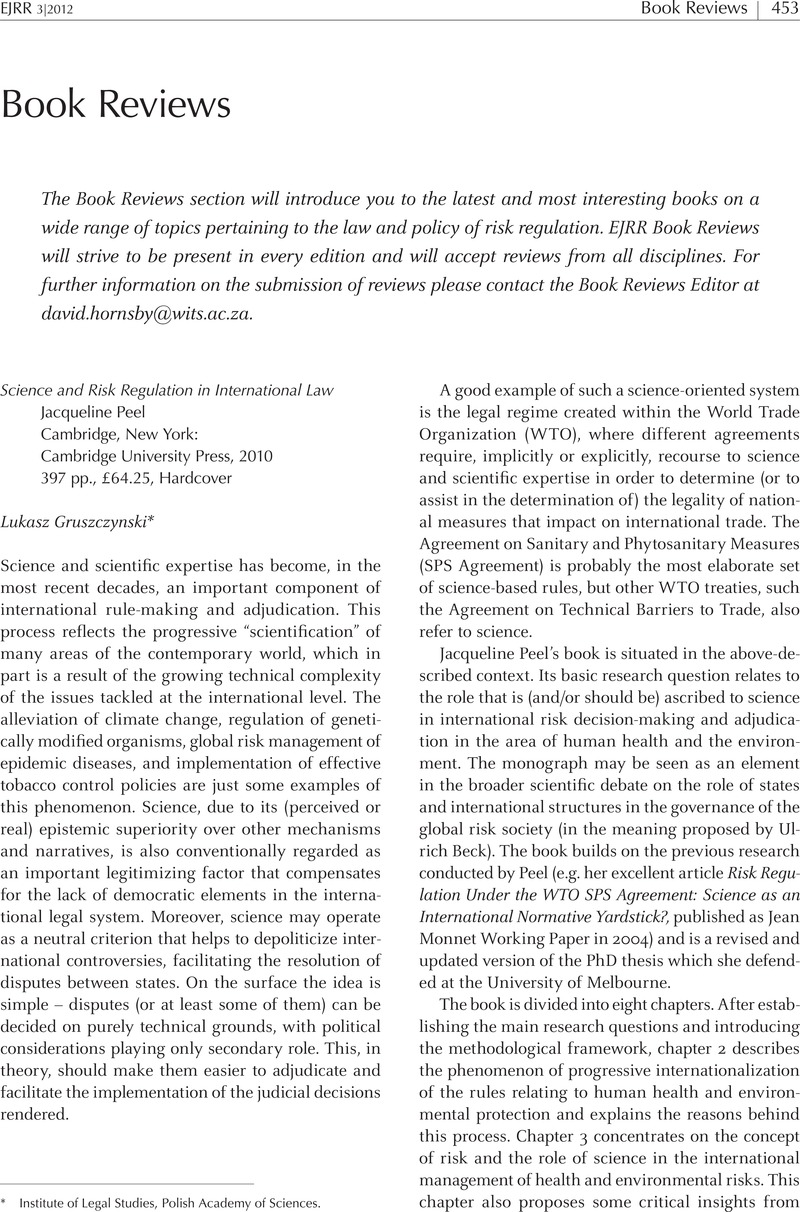No CrossRef data available.
Published online by Cambridge University Press: 20 January 2017

1 This issue was also addressed in another work of Peel; see Peel, Jacqueline, “A GMO by Any Other Name … Might Be an SPS Risk!: Implications of Expanding the Scope of the WTO Sanitary and Phytosanitary Measures Agreement”, 17(5) European Journal of International Law (2007), pp. 1009–1031 CrossRefGoogle Scholar (analysing the consequences of an expansive interpretation proposed by the Biotech panel for international environmental law).
2 Standard of review, in the SPS context, can be defined as the level of scrutiny applied by WTO panels to scientific determinations made by WTO Members. In theory, it can vary from de novo review to full deference (with many intermediate variations). De novo review gives panels unconstrained power to review all the determinations made by national bodies and substitute them with their own. A fully deferential standard is restricted to a mere examination of procedural compliance.
3 A similar narrative was proposed by Tracey Epps, who distinguished between normal disputes and so-called “difficult (or ‘amber’) cases”. According to Epps, the latter category should be approached with relatively high degree of deference (see, Epps, Tracey, International Trade and Health Protection. A Critical Assessment of the WTO’s SPS Agreement, (Cheltenham: Edward Elgar, 2008)CrossRefGoogle Scholar).
4 International Court of Justice, Case concerning the Gab ikovo-Nagymaros Project (Hungary/Slovakia), Judgment of 25 September 1997, ICJ Reports 1997.
5 European Court of Justice, Case T-229/04, Sweden v. Commission, 11 July 2007 [2007], ECR I-2437.
6 Appellate Body Report, Australia – Measures Affecting the Importation of Apples from New Zealand, WT/DS367/AB/R, adopted 17 December 2010.
7 Appellate Body Report, United States – Continued Suspension of Obligations in the EC – Hormones Dispute, WT/DS320/AB/R, adopted 14 November 2008.
8 See Peel, Jacqueline, “Of Apples and Oranges (and Hormones in Beef): Science and the Standard of Review in WTO Disputes under the SPS Agreement”, 61 International and Comparative Law Quarterly (2012), pp.427 et sqq CrossRefGoogle Scholar.